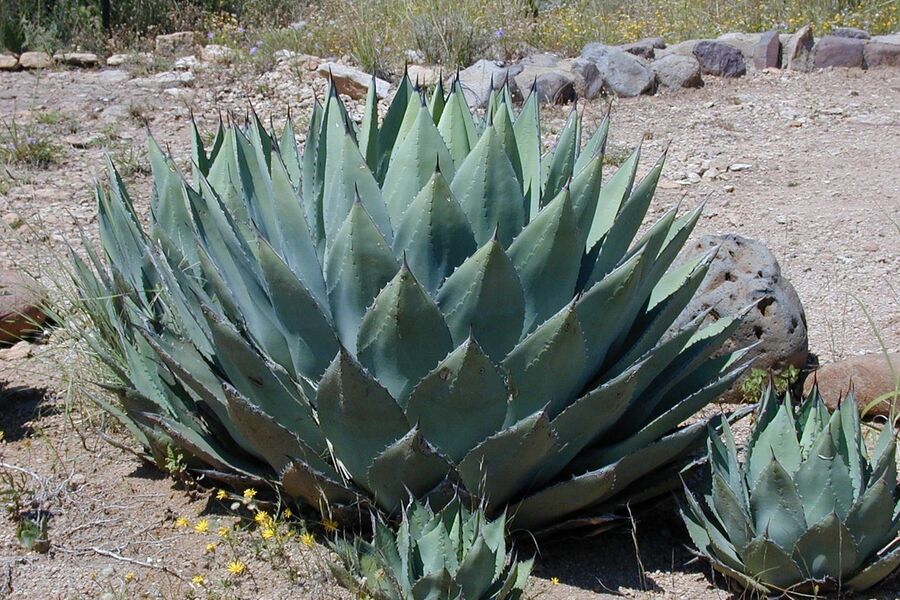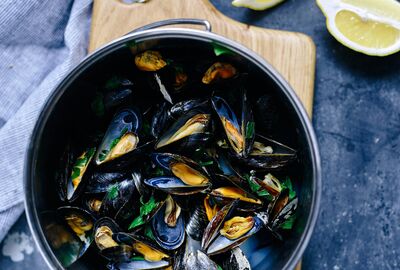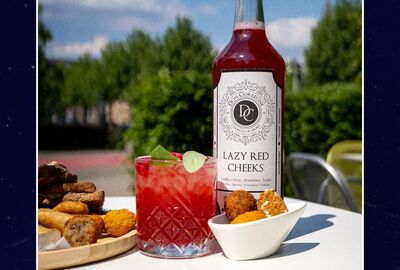
When you think of Mexico, chances are that tequila is the first thing that comes to mind. But besides tequila, there is another Mexican drink that is winning more and more hearts: mezcal. Although they have a lot in common, tequila and mezcal are still very different drinks, each with their own unique traditions, flavours and production processes. In this blog, we dive deeper into the world of tequila and mezcal, discover their origins and traditions, and explore the main differences between these two icons of Mexican beverage culture.
Tequila's origins and traditions
Tequila is named after the town of the same name Tequila in the Mexican state of Jalisco. This drink is made exclusively from the blue agave (Agave tequilana), and production is limited to certain regions in Mexico, such as Jalisco and parts of the states of Nayarit, Michoacán, Guanajuato and Tamaulipas. To bear the name "tequila", the drink must comply with strict rules and be produced within these defined areas, similar to the rules for champagne in France.
Tequila production is deeply intertwined with Mexican culture and history. Originally, indigenous peoples made a drink called pulque from the juice of the agave plant. When the Spanish conquistadores arrived, they introduced distillation techniques, eventually leading to the creation of tequila as we know it today. Today, tequila is not only a drink for the holidays, but also a symbol of Mexican pride and heritage.
Mezcal's origins and traditions
Mezcal, on the other hand, has broader origins and is made from different types of agave plants. Mezcal production is less regulated than tequila, although the main region for production is Oaxaca, where the drink plays a central role in cultural rituals and ceremonies. While tequila is mainly made from blue agave, mezcal can be produced from dozens of different agave varieties, including EspadÃn, Tobalá and Pechuga.
The production of mezcal has a centuries-old tradition and is often still made by artisanal methods. The unique character of mezcal comes from the process by which the agave hearts (also known as "piñas") are roasted in underground pits, which gives the drink its distinctive smoky flavour. Mezcal is often considered the "parent" of tequila, as the process is much more traditional and rustic.
Flavour profiles: Tequila versus Mezcal
In terms of flavour, tequila and mezcal are very different, although they share the same agave base.
Tequila has varying flavours depending on its maturation. Young, unripened tequilas such as blanco have a fresh, sharp agave flavour, with notes of citrus, pepper and sometimes a hint of sweetness. As tequila matures, as in the case of reposado (aged between 2 months and 1 year) and añejo (aged at least 1 year), the drink develops a softer, fuller character with hints of vanilla, caramel and oak.
Mezcal has a much more pronounced and complex flavour profile. The smoky undertones are immediately noticeable and come from the roasting of the agave. Depending on the agave variety used and the production process, flavours can range from earthy and mineral-like to fruity, floral or even meaty, as in the rare pechuga mezcal, where meat or fruit is added during the distillation process. The smokiness, however, always remains a dominant feature.
Main differences between Tequila and Mezcal
Although tequila and mezcal are both agave-based drinks, there are a few key differences that distinguish them:
- Agave varieties: Tequila is made exclusively from blue agave, while mezcal can be made from dozens of different agave varieties.
- Production process: In tequila, the agave is steamed in ovens and then distilled, resulting in an often cleaner, less smoky flavour. With mezcal, however, the agave is roasted in underground pits, giving the drink its distinctive smoky character.
- Geographical origin: Tequila is mainly produced in Jalisco, while mezcal comes mainly from Oaxaca, although it is made in several other Mexican states.
- Flavour profile: Tequila tends to be softer and more approachable with a focus on agave, citrus and wood tones, depending on maturation. Mezcal, on the other hand, is more complex and always has a smoky base, with a wide range of flavours depending on the agave variety and the production process.
How to best enjoy Tequila and Mezcal?
Traditionally, both tequila and mezcal are drunk pure, often without any additives to fully experience the complex flavours. Tequila is sometimes served with a small glass of water or a slice of lime to cleanse the flavour. Mezcal is often served with a slice of orange and a little sal de gusano (salt mixed with dried worms and chilli) to accentuate the flavours.
Of course, tequila and mezcal are also widely used in cocktails. Tequila forms the basis of the famous Margarita, a refreshing combination of tequila, lime juice and triple sec. Mezcal is increasingly common in cocktails such as the Mezcal Negroni, in which the smokiness of mezcal adds a new dimension to the classic Negroni.
Two drinks, one heart of Mexico
Although tequila and mezcal are often compared, each has its own unique identity. Tequila is sophisticated, subtle and streamlined, while mezcal is earthy, smoky and complex. Both drinks represent the soul of Mexico, and with their own unique flavours and production processes, they offer a world of discovery for both the novice and the seasoned connoisseur.
Whether you prefer the clean, citrusy freshness of tequila or the smoky, earthy intensity of mezcal, one thing is certain: both drinks will bring you closer to Mexico's rich culture and traditions.

Blogger
The text you've just read was (partially) created with the help of ChatGPT . Although every story we write is thoroughly proofread and corrected with the help of ChatGPT, it can always happen that an error has crept in here and there that you, as a seasoned connoisseur, do not agree with.
Therefore, if after reading this blog you do not agree with certain statements that are put forward, please do not hesitate to let us know via service@broekmans.be so that we can further edit this text.
It is a conscious decision to explicitly mention that this blog article was written with the help of AI, as nothing is more valuable than the work, preparations and efforts made by "real" bloggers when they publish blog articles on our webshop (or elsewhere) that are not supported by AI.







